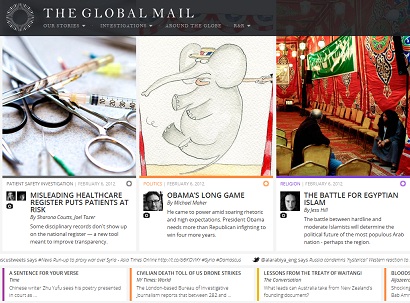The Murdoch-owned newspaper, the Australian, last month secured a order to prevent the publication of a report about its police scoop in summer 2009.
As we’ve previously reported on this blog, on 4 August 2009 Australian police arrested four people in terror raids – a planned operation reported exclusively by the Australian newspaper, part of the News Ltd group. But the police claimed copies of the newspaper were available in Melbourne before the operation had taken place, citing that an “unacceptable risk”.
It was an enviable scoop and won journalist Cameron Stewart the ‘Gold Quill’ in the Melbourne Press Club awards. But the Australian Commission for Law Enforcement Integrity (ACLEI) and the and the The Victorian Office of Police Integrity (OPI) produced a report, examining the source of the leak.
The Australian newspaper subsequently acquired a Federal Court order prohibiting publication of the report. The OPI then sought to overturn the order. But on 23 April, the Australian won the right to keep the document private. Crikey.com.au journalist Margaret Simons has been reporting – and tweeting – the case.
Simons last reported:
Justice Michelle Gordon said that continued suppression of the Victorian Office of Police Integrity’s report on the matter is necessary because The Australian is arguing that the whole investigation was invalid, and the evidence gathered “tainted”.
But the case isn’t completely over yet. Simons continued:
Justice Gordon’s decision means that it will be at least another three weeks, and probably much longer, before we know the full story of what occurred between Stewart, his source and the OPI. News Ltd has made it clear it will appeal against any judgement that would allow the OPI report to be released.
Last week, I asked Margaret Simons, who is a freelancer for Crikey – an independent online news and comment site – about her own views of this complicated case. She says she doesn’t know why the Australian is so keen to suppress the document.
Does Simons think the report should be released? “Without knowing all the facts, it is hard to say. The Australian claims the OPI’s investigation was very flawed. Maybe so. The OPI has a chequered record.
“There is an irony, though, in The Australian’s leading role in the Right to Know Coalition, pressing governments for more openness, and its contesting of suppression orders in other matters … and its active suppression in this case.
“It would be nice to think that the rights and wrongs of this matter could be fought out in open. However, without knowing all the facts of what is contained in the report, it is genuinely hard to judge and I do not have a strong point of view at present.
Simons says that Crikey’s editorial position is not so much a matter of opinion, but an attempt to raise awareness. “[I]n a country where the print media is dominated by just two publishers, with News Ltd being overwhelmingly dominant, there is a particular role for an independent outlet such as ours in covering the media’s own story,” she said.
Neither News Ltd or Fairfax – Australia’s other main newspaper publisher – are giving this case “the weight it deserves,” she said. “We are doing our best. Keep in mind that our audience includes most of the country’s journalists!”
